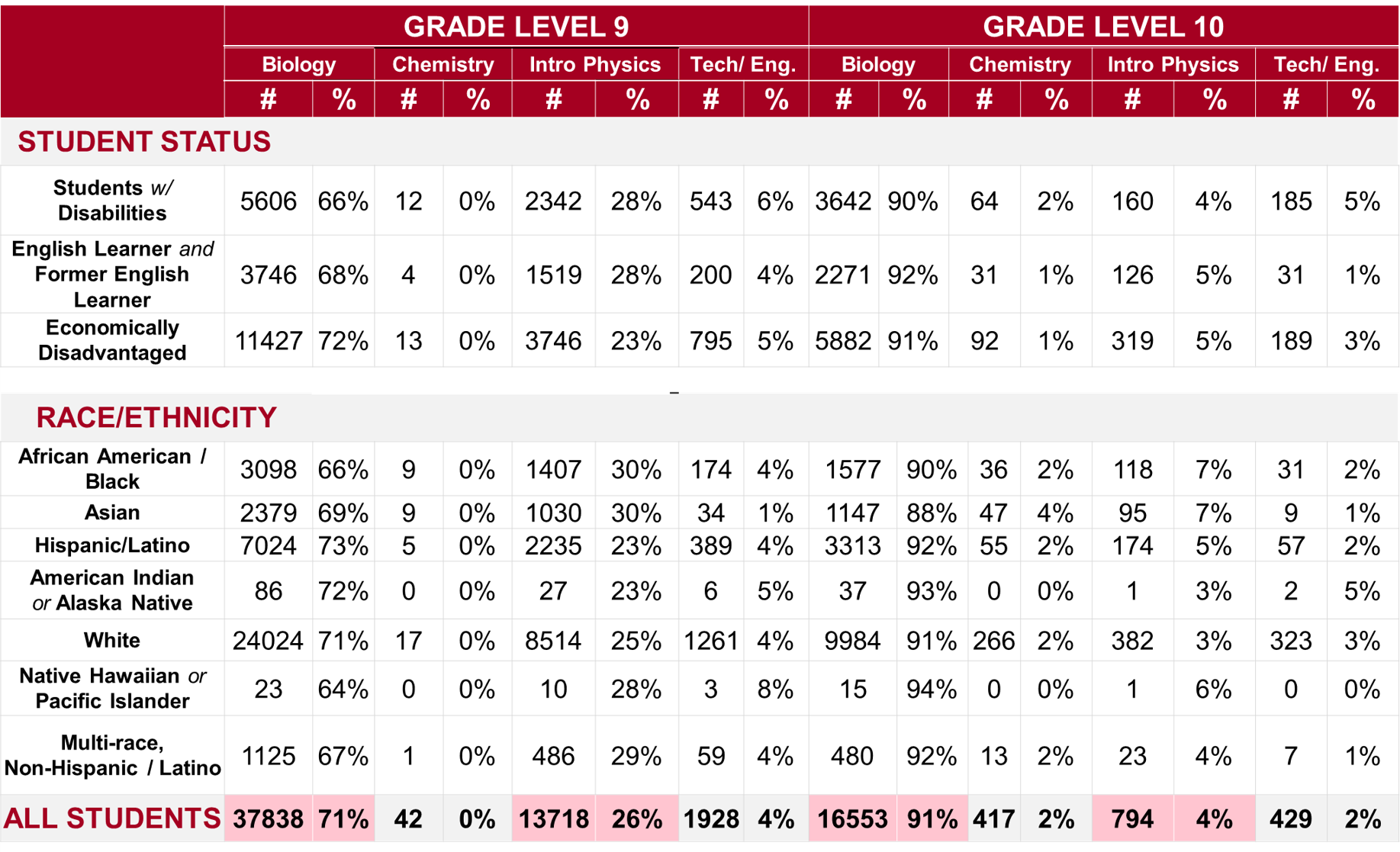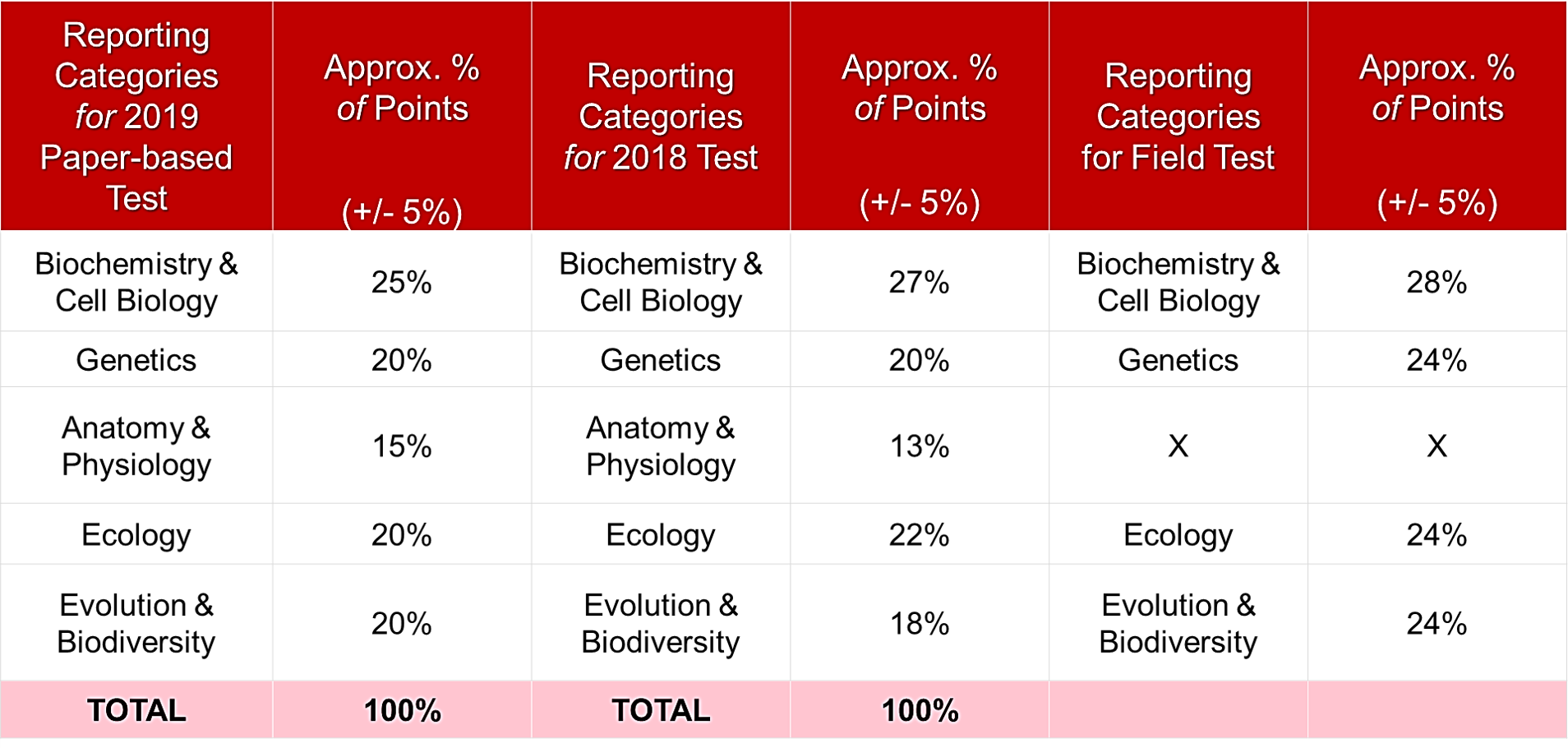Are we confused yet?
By Joan Reissman, MCAS Maven
If you are a science teacher, you know all about the different science tests. But if you’re a student or parent, you may be wondering about them. You know that the new MCAS 2.0 in English and math have been redesigned to meet more demanding standards of college and career readiness. But what about science?
This year was the first year for computer based MCAS tests in math and English for high school. The science tests are still paper-based, but there will be some field tests of computer-based Biology and Introductory Physics. Parents and students may have some questions. What standards will be tested? What test or tests are required for graduation? What choices do students have?
Standards in all core areas have been revised. The science standards were revised in 2016, but the science MCAS tests are still based on the 2006 standards. The Biology test that was administered in February 2019 was the last test to be based on the 2006 standards. The exams that will be administered in June 2019 and February 2020 will be based on standards that overlap between the 2006 and 2016 standards. If you want to see the overlapping standards for Introductory Physics and Biology click here. You will see documents that list the overlapping standards. Yes, it’s confusing, but you can figure it out.
Currently, there are four science tests a student can take to graduate high school. Passing any one of these tests will meet graduation requirements. The four tests this year are Biology, Introductory Physics, Chemistry, and Technology/ Engineering. Biology is the only science test administered two times during the year. Why is Biology administered twice? Because the vast majority of students in 9th and 10th grades take the Biology test. Introductory Physics is a distant second. This chart from the DESE website shows the participation rates.
Participation Summary for State Totals
Source: Massachusetts Department of Education
The chart shows that 71% of 9th grade test-takers and 91% of 10th grade test-takers took the Biology test. The only other sizable participation was for Introductory Physics (26% in 9th grade and 4% in 10th). Due to low participation rates DESE is recommending phasing out Chemistry and Technology/ Engineering. DESE is also recommending adding a second administration of Introductory Physics. For more information on this topic click here.
What does all this mean for the student and which tests do students have to take? Massachusetts high school students must take 3 years of science in order to graduate, but districts can determine which science courses fulfill the requirement. If you look back at the chart above, you will notice that the highest participation rates for Biology and Physics are in 9th grade. Schools guide students on which tests to take and students will choose biology or physics depending on which course they are taking in 9th grade. Traditionally, students took biology in 10th grade, but many schools now have students take Biology in 9th grade so that they will have more chances to pass the test. Other schools feel that some students will do better in physics, especially if they are good in math. These students take physics in 9th grade, so that’s when they take the Introductory Physics MCAS. It depends on what course a student takes in what grade.
This June 2019 will be the last time DESE will offer all four tests in the paper-based version (Biology, Physics, Chemistry, Technology/Engineering). Some students will also take online field tests in Biology and Physics. You may ask which tests you have to take and whether you have to take more than one. Remember, you only need to pass one science test to graduate. You will probably take the Biology or Physics test in 9th grade if you are currently taking either one of these courses in 9th grade. If you are not taking either one of these courses until 10th grade, then you should not be taking any science test this June. The exception to this rule is the small number of students who might want to take the Technology/Engineering test. Last year 10% of the students in Massachusetts vocational schools took the Technology/Engineering test. The participation rate for all schools in Technology/Engineering was 4% in 9th grade and 2% in 10th.
As stated previously, the Biology and Physics exams will be based on standards that overlap between the 2006 and 2016 science frameworks. The Chemistry and Technology/Engineering tests will still be based on the 2006 standards, as shown here. This web page has documents that list all the standards that are being tested. You may also want to know how these standards connect. DESE has a crosswalk between the 2006 and 2016 standards for all grade levels and can be found here.
The passing threshold for the science tests is lower than for math and English. A student must score 240, or Proficient, on the math and English exams. Past years’ scoring rubrics have made about 50% of the raw points the threshold of Proficient. Although DESE may change the science threshold in the future, the passing score for all MCAS science tests is still Needs Improvement, which is a scaled score of 220. The 220 cutoffs in 2018 was 33% in Biology and Introductory Physics, 36% in Technology/Engineering, and 38% in Chemistry. That means you only have to get a raw score between 20 and 23 out of a total of 60 to pass the test.
What about science field tests? Which field tests will be given and who has to take them? There will be field tests in Biology and Introductory Physics. Schools can administer the field test any time between May 28 and June 14. Schools cannot administer the field tests on June 3-5 because these dates conflict with the administration of the paper-based test. Who will be taking the field tests? When DESE administered field tests in math and English, schools were randomly chosen, and the expected rate of participation was 25%. The participation requirements for the science are a little different. Any 9th grade student enrolled in Biology or Physics who is taking the paper-based test will also need to take the field test in that subject. Here is what DESE says regarding required participation:
Although you may be required to take the field test, it will not count. The field test will be one session of approximately 45 minutes to complete. This test is really for the benefit of future students. If students taking the field test also take the paper test, DESE will get a better understanding of how students will perform on the new science tests in June of 2020. Since there is no previous administration of this field test, the best way to get an idea of how this test looks would be to take one of the practice science tests on the DESE website. There is one computer-based practice test in Biology and one in Introductory Physics. There are only paper-based tests for the other science exams. Click here if you want to look at these tests.
Is it a good idea to look at these practice tests? YES. This is a transitional year. All the previous science tests were based on the old standards, but this year’s test will include the overlapping standards. Since some of the questions on these tests will be moving in the direction of MCAS 2.0, it is a good idea to try the computer-based test to get a preview of the questions you may see on the June MCAS that reflect the new standards.
How do the paper-based and the online field test compare? We can’t say for sure because we haven’t seen the field test. All we have for comparison is the 2018 test, the DESE distribution document for this year, and the practice test on the DESE/Pearson website. If you compare these three tests, the point distribution is very similar. You can’t make an exact comparison because the new test will be based solely on the new standards. This year’s test will be a hybrid and the 2018 test was based on 2006 standards. The reporting categories are a little different but take a look at the comparison for the Biology test. Even though the reporting categories are different for the field test, the percentages across the board are similar.
Now you know what you will need to take. Don’t worry– only the paper-based results will count this year. If you are a 9th or 10th grader enrolled in Biology or Physics, you will take the Biology or the Introductory Physics test. If you are a 9th grader, you will also be taking the field test. I would recommend also taking the 2018 practice test and the computer-based practice tests in your course on the DESE website. Even if you don’t pass, you will have more chances to retake the test. MCAS 2.0 online science tests will be the standard in 2020. The only test based on overlapping standards next year will be the February 2020 Biology test. Since there has never been a science retest, a computer-based test may be your only option after next February.
Be prepared. Do the practice tests. You need to be ready for MCAS 2.0.
Joan Reissman, the MCAS Maven, is a veteran Blended Learning Specialist with JFYNetWorks. She has been analyzing state curriculum standards and MCAS tests since 2000.








